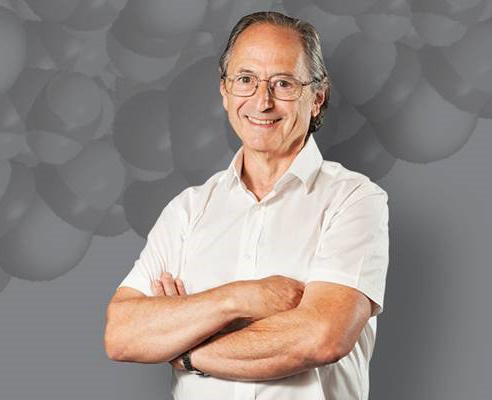Latest News Archive
Please select Category, Year, and then Month to display items
17 September 2018
Photo Charl Devenish
 Innocensia Mangoato’s research on using cannabis to reverse anticancer drug resistance has been awarded in the prestigious Women in Science Awards.
Innocensia Mangoato’s research on using cannabis to reverse anticancer drug resistance has been awarded in the prestigious Women in Science Awards.
“There’s this misconception among young people that science is difficult and that it’s somehow a man’s domain,” says Innocensia Mangoato, Masters student in Pharmacology, who has just been awarded in the prestigious Women in Science Awards by the Department of Science and Technology.
Cannabis research
Innocensia won in the Master’s Degree category for her research on the use of cannabis in reversing anticancer drug resistance. Her department had to apply for a special permit to grow cannabis for research and medicinal purposes.
“Her findings have already indicated a promising reversal of resistance to drugs in a variety of cancers. We plan to explore these results further in a possible PhD,” says her study leader, Prof Motlalepula Matsabisa.
Innocensia says she’s always had an interest in science, and initially wanted to study medicine. She ended up doing a BSc in Physiology and Genetics.
She hopes that her research will help government to develop a policy around the use of cannabis for medicinal purposes which could ultimately lead to developing cancer treatment with fewer side-effects.
Female mentors
“My mentor during my Honours studies was Dr Makhotso Lekhoa. Her passion for her field and her patience in conveying it to others really inspired me. We have some very powerful women in our Pharmacology Department,” says Innocensia.
Passion for science
“You know you’re passionate about your work when you find yourself going to the lab on Sunday afternoons!” she says. “I’m happy that I can be contributing to the knowledge production on this campus. And maybe one day I can be a mentor to other girls with that same passion for science.”
Nobel Laureate for Chemistry to visit UFS
2017-10-28

Prof Michael Levitt will be hosted by the UFS from
14 to 16 November 2017, where he will present the
first lecture in the Vice-Chancellor’s
Prestige Lecture Series.
Photo: Supplied
It is a great honour for the University of the Free State (UFS) to host Prof Michael Levitt, recipient of the 2013 Nobel Prize for Chemistry, which he shares with Marti Karplus and Arieh Warshel.
The trio received the Nobel Prize for their development of multiscale models used for complex chemical systems. “Being awarded the Nobel Prize is a unique and marvellous experience that no one can prepare for or could in any way know what to except,” said Prof Levitt during his 2013 Nobel Lecture at the Stanford University School of Medicine.
First lecture in Vice-Chancellor’s lecture series
The South African-born Nobel Laureate and Academy of Science of South Africa (ASSAf) Visiting Scholar will present the first lecture, Birth and Future of Multiscale Modelling of Macromolecules, in the Vice-Chancellors Prestige Lecture Series at the UFS on 14 November 2017. Prof Levitt is well-known for developing approaches which predict macromolecular structures.
He is one of many distinguished academics invited annually by ASSAf to deliver lectures as part of the Distinguished Visiting Scholars’ Programme, presented by ASSAf at universities across the country.
Pioneer in research of molecular dynamics
Prof Levitt is a biophysicist and a professor of Biology at Stanford University. He was one of the earliest researchers to conduct research on molecular dynamics stimulations of DNA and proteins. “My post-prize ambitions are twofold and probably inconsistent: (1) Work single-mindedly as I did in the mid-1970s on hard problems, and (2) Help today’s young scientists gain the recognition and independence which my generation enjoyed,” said Prof Levitt.